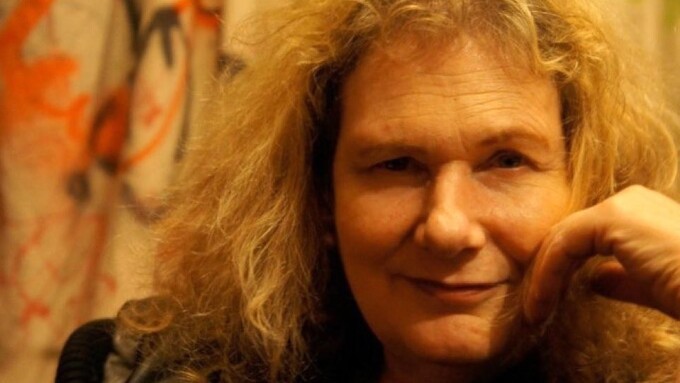SAN FRANCISCO — Sex workers’ rights pioneer Carol Leigh, who coined the term “sex worker” in the 1970s, died yesterday. She was 71.
News of Leigh’s passing was mourned online by a vast number of sex workers and advocates, who universally hailed Leigh’s contributions to the cause of decriminalization, the fight against stigma and the ongoing struggle for the recognition of sex worker voices and rights.
Leigh’s early advocacy is recognized as having been crucial in shifting discourse away from “prostitution” — a term grounded in punitive legal and law enforcement frameworks — and toward the current common use of the neutral, destigmatizing “sex work” and “sex worker.” Leigh tirelessly continued her advocacy into the digital era until the very end of her life, communicating through Twitter and participating in conferences via Zoom.
“Rest In Peace Carol Leigh (aka Scarlet Harlot),” wrote Jiz Lee in a tweet, calling the activist “an icon who dedicated her life to sex workers’ rights (coining the term “sex worker” in the 70s), HIV/AIDS activism, and videos promoting sexual health and pleasure.” Lee also shared a link to the Leigh's work.
Sex worker and noted writer on sex work Lorelei Lee eulogized Leigh as someone who “gave her whole life to people in the sex trades, and never stopped learning, growing and questioning her own analyses. She was the rare icon who also made herself a student of younger activists. She gave me so much, and I'll hold her in my heart always.”
Performer and activist Arabelle Raphael wrote, “I don’t talk much about organizing these days but this woman was an icon and spent years of her life organizing and showing up for sex workers rights until the end.”
In late September, iconic performer and lecturer Annie Sprinkle announced that she and her partner had been entrusted with the care of Leigh’s archives, documenting several decades of sex work activism.
Inventing 'Sex Work'
Vice/Motherboard journalist Samantha Cole published an obituary today hailing Leigh’s advocacy work, from her authorship of political films and shows, to her co-founding of the Bay Area Sex Workers Advocacy Network and the Sex Workers Outreach Project, and her early membership in HIV and AIDS activist organization ACT UP.
Leigh, Cole noted, also “spearheaded multiple efforts to educate and lobby for better understanding of anti-trafficking initiatives and the ways they affect sex workers.”
Cole’s obituary also shares Leigh’s version — from her essay, “Inventing Sex Work” — of her coinage of the term “sex worker” in the now accepted sense.
“Leigh wrote that the term ‘sex worker’ came to her while attending a conference by the anti-porn feminist organization Women Against Violence in Pornography and Media in the late 1970s. She was in attendance in hopes to educate others about the industry, as someone active in it — she publicly identified herself as a prostitute, which was courageous for the time, especially in a hostile environment such as that conference.”
Leigh wrote, “As I entered I saw a newsprint pad with the title of the workshop. It included the phrase ‘Sex Use Industry.’ The words stuck out and embarrassed me. How could I sit amid other women as a political equal when I was being objectified like that, described only as something used, obscuring my role as an actor and agent in this transaction?”
Cole notes that Leigh offered the term “sex work industry” instead, “because that described what women did.”
“I went on to explain how crucial it was to create a discourse about the sex trades that could be inclusive of women working in the trades,” Leigh continued. “I explained that prostitutes are often unable to reveal themselves in feminist contexts because they feel judged by other feminists.”








